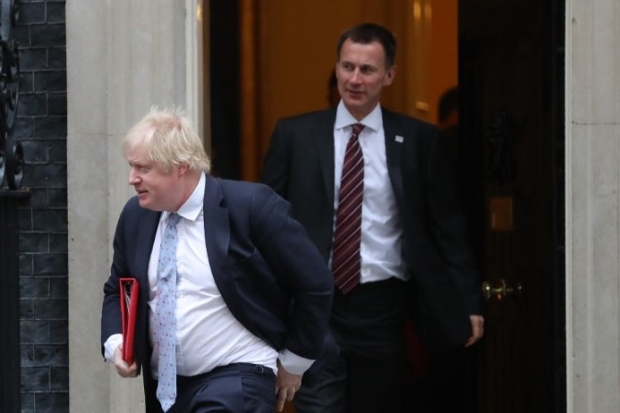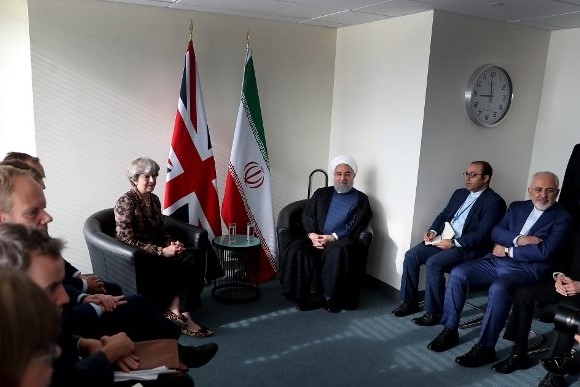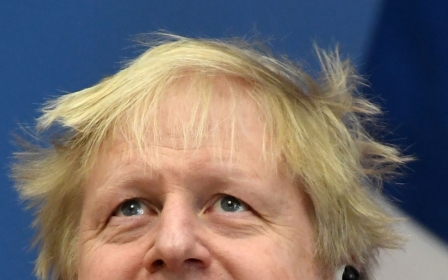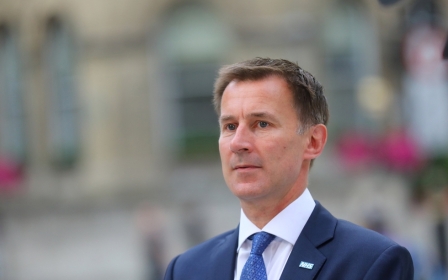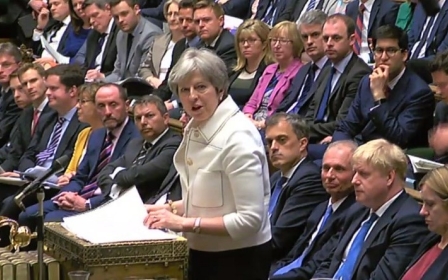Jeremy Hunt: Are we looking at the UK's next prime minister?
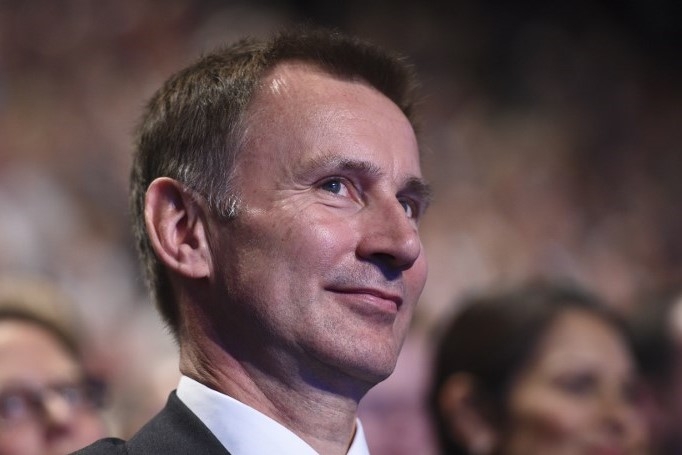
On Monday, an embattled Theresa May cast around for an emergency replacement to Boris Johnson as British foreign secretary. She identified 51-year-old health minister Jeremy Hunt.
Watch this man. I predict he will be the next British prime minister. Hunt is British establishment through and through. He was head boy of an elite public school, Charterhouse, before going on to read Philosophy, Politics and Economics at Oxford.
His father, Sir Nicholas Hunt, was admiral of the fleet – Britain's most senior naval officer - from 1985 to 1987.
A cosmopolitan outlook
Hunt is a softly spoken man, quietly analytical, with a gift for staying out of trouble. I rate him very highly indeed. He is relatively young for such a senior and experienced politician and, unusually in this era, he has had a life outside politics.
He made a fortune through founding an education business, Hotcourses. He also founded a charity to help AIDS orphans in Africa, in which he continues to play an active role and donates very generously. £250,000 a year was the (unconfirmed) sum I've heard from private sources.
His wife, Lucia Guo, is Chinese, about who little is known. Hunt is the first senior British politician since World War Two who naturally looks East rather than across the Atlantic to the United States.
As far as I know he's never had an unconventional thought on foreign policy. Ten years ago it was fashionable for Western politicians to suck up to Syrian President Bashar al-Assad, and Hunt duly sucked up. He went on a trip in 2007 with several other British politicians and duly celebrated the man who was seen as the modernising, radical successor to his father, Hafez al-Assad.
Minor, pointless and formulaic
When the Arab Spring arrived, it became fashionable to condemn Assad, and this most conventionally minded politician duly condemned him.
As night follows day, Jeremy Hunt reflects the conventional line on Israel. As one would expect, he has condemned the Boycott, Divestment and Sanctions movement (BDS).
Hunt has never diverted so much as a cigarette paper from the conventional Tory policy line that Israel is Britain's closest ally in the Middle East. The criticisms he's made – that Israeli demolition of Palestinian villages would cause "unnecessary suffering" – have been minor, pointless and formulaic.
The same applies to the war being waged in Yemen. Cautious Hunt, his eye firmly fixed on Downing Street, has been careful never to attack the British arms trade with Saudi Arabia. He's reiterated the conventional British government line that we must do more to avert the humanitarian crisis, but he has diverted his gaze from the real cause of that crisis which is the barbarous Saudi blockade and bombing campaign.
Cautious Hunt, his eye firmly fixed on Downing Street, has been careful never to attack the British Arms trade with Saudi Arabia
Does Hunt understand the Middle East? Certainly not - and his Foreign Office mandarins will like it that way. They will give him the briefings he needs, and no more. Hunt - an accomplished Whitehall performer - will be careful not to ask the difficult questions. He will let Alistair Burt, the Middle East minister whose comfort zones are Riyadh, the UAE and Tel Aviv, continue to shape policy.
Two massive crises in the region will confront him in his early months in office.
The first of these concerns Donald Trump's declaration of economic war against Tehran. The jungle drums inside the Conservative Party are beating. A well-connected group of neoconservative MPs, led by former cabinet ministers Iain Duncan Smith and Stephen Crabb, are starting to countenance calls for regime change.
I have seen no evidence that Hunt will be tempted to endorse these calls. He'll take the Foreign Office line which means (I predict) that he will continue the work of his predecessor, Boris Johnson, and work closely with Germany, France, Russia and China to save the Iran nuclear deal from destruction.
No political risks
But will he show the courage and firmness needed to defy the US Treasury and allow British companies to continue trading with Iran? I rather doubt it. Hunt won't want to make powerful enemies in Washington or Tel Aviv. That means he won't take the political risks necessary to rescue Iran from its predicament.
This bloodless attitude will prove crucial when the "Deal of the Century" is announced by Trump. This new future for the Middle East, dreamt up by Saudi Arabia, the US and Israel, puts paid to all hope of the two states outcome, the solution which Britain has claimed to back for the last half a century.
Will Hunt just go along with the American plan? I expect he will in the end, after a few squeaks of protest. Expect a similar display of moral inertia in Yemen. Bloodless Hunt will not want to jeopardise his chances of succeeding May by doing the right thing and ending British complicity in Saudi barbarism.
I rate Jeremy Hunt. He is an homme serieux who is playing a deadly serious political game. He is one of the very few cabinet ministers whose political careers have not gone down in flames in the aftermath of Brexit. He's managed the National Health Service with remorseless skill for which he has not been given nearly enough credit.
The Foreign Office is a well-oiled machine and it's safer to go with the flow. He will have studied closely the example of Johnson, his predecessor. Johnson wanted to challenge the British policy on Syria, and failed. He tried to argue for warmer relations with Russia – that came to nothing too.
Don't expect anything spectacular from Hunt, not at first anyway. Do expect quiet competence. And remember that for Jeremy Hunt the Foreign Office is just a staging post.
- Peter Oborne won best commentary/blogging in 2017 and was named freelancer of the year in 2016 at the Online Media Awards for articles he wrote for Middle East Eye. He also was British Press Awards Columnist of the Year 2013. He resigned as chief political columnist of the Daily Telegraph in 2015. His books include The Triumph of the Political Class, The Rise of Political Lying, and Why the West is Wrong about Nuclear Iran.
The views expressed in this article belong to the author and do not necessarily reflect the editorial policy of Middle East Eye.
Photo: Jeremy Hunt sits in the audience waiting at the final day of the Conservative Party annual conference in Manchester in October 2017 (AFP)
New MEE newsletter: Jerusalem Dispatch
Sign up to get the latest insights and analysis on Israel-Palestine, alongside Turkey Unpacked and other MEE newsletters
Middle East Eye delivers independent and unrivalled coverage and analysis of the Middle East, North Africa and beyond. To learn more about republishing this content and the associated fees, please fill out this form. More about MEE can be found here.



